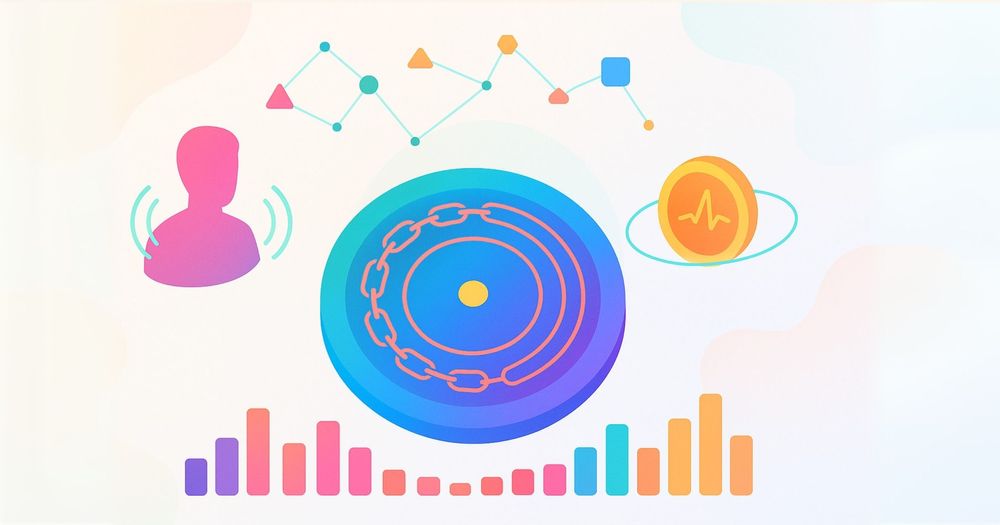Seven years of crashes, pivots, and relentless belief in a vision most people couldn't see
The email notification lit up my phone at 3:47 AM. Another rejection from a major music label: "Interesting concept, but fans don't want to be investors. They just want to listen to music."
I set the phone down and stared out at the empty street from my apartment window. Seven years. Seven years of building, failing, rebuilding, and watching the crypto world burn down around me multiple times. Seven years of explaining why blockchain technology could revolutionize how artists and fans connect, only to have industry veterans look at me like I was speaking a foreign language.
But sitting there in that pre-dawn silence, I realized something crucial: the people rejecting this vision were the same people who had built a system that pays artists fractions of pennies while platform owners collect billions. They couldn't see what I was building because they were trapped in a paradigm where fans are consumers and artists are content providers.
What if there was a different way? What if the relationship between musicians and their supporters could transcend mere transactions and become genuine partnerships? What if fans could actually own pieces of the artists they love?
This is the story of those seven years—every crash, every pivot, every moment when giving up seemed rational—and why they were all necessary to build something that could fundamentally transform the music industry.
The Promise Hidden in the Chaos
My first encounter with blockchain's revolutionary potential came in 2012, using Bitcoin to make purchases on the Silk Road. Even then, through the haze of digital rebellion, I could see the profound implications: decentralized power structures, value returning to users instead of corporate overlords, and transparent systems where everyone could benefit.
But understanding a vision and making it accessible to the world are entirely different challenges. Like countless entrepreneurs in the Web3 space, I believed blockchain could fundamentally restructure digital platforms—shifting from extraction models where corporations harvest user value to participatory ecosystems where users become genuine stakeholders.
The question was never if this transformation would happen. The question was how to make revolutionary technology comprehensible and useful to people who just wanted to support their favorite artists.
Act I: Building Utopian Knowledge Systems (2017-2018)
My journey into blockchain-based software products began in 2017 with Trybe, a tokenized knowledge-sharing platform built on the EOS blockchain. The concept felt both ambitious and elegantly simple: reward people with tokens for creating educational content about blockchain technology. We wanted to democratize knowledge while proving that communities could own and govern their own platforms.
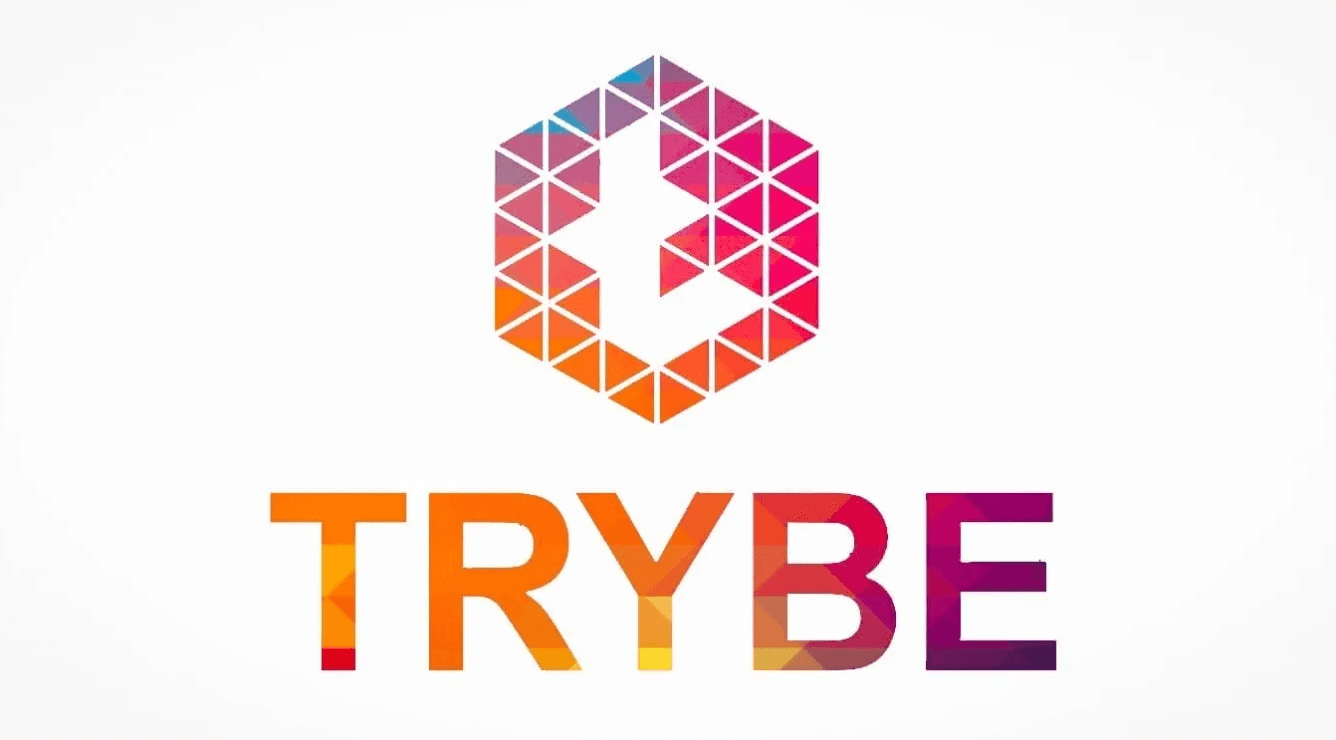
The early results were intoxicating. Trybe attracted 40,000 genuinely engaged users who were learning and teaching about emerging technology. For those brief months, it felt like witnessing the birth of a new internet—one where contributors received fair compensation instead of tech giants capturing all the value.
Then reality struck with the force of a sledgehammer. The 2018 crypto crash wasn't just a market correction; it was an apocalyptic event for early Web3 projects. Trybe, along with countless other blockchain ventures, couldn't survive the crypto winter. Our vibrant community scattered, our tokens became digital dust, and our grand vision temporarily died a brutal death.
The lesson was harsh but necessary: building in emerging technology spaces means betting everything on forces you can't control.
Act II: DeFi Dreams and Spectacular Failures (2020-2022)
After nursing our wounds and rebuilding our confidence, we pivoted to decentralized finance in 2020, constructing a DEX (decentralized exchange) on the Terra blockchain. The timing appeared perfect—DeFi was experiencing explosive growth, Terra was gaining serious momentum, and we had learned valuable lessons from our first venture's demise.
Our DEX achieved remarkable success, reaching $150 million in Total Value Locked (TVL). For a shining moment, we thought we had finally cracked the code. We were facilitating genuine economic activity, users were earning substantial yields, and the platform was generating sustainable revenue streams.
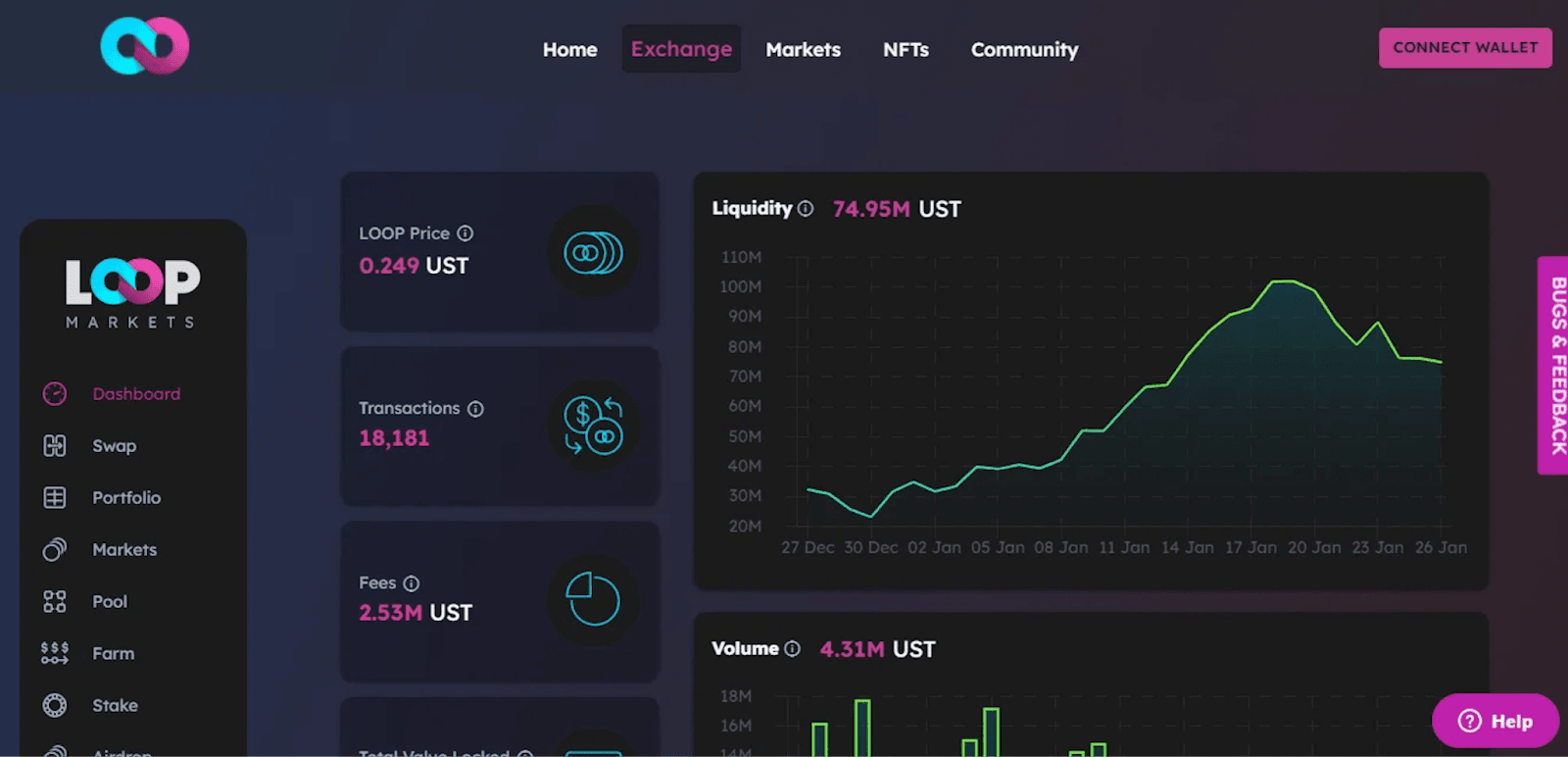
But lightning struck twice with devastating precision. Terra's catastrophic collapse in 2022 obliterated our DEX along with billions in user funds across the entire ecosystem. Once again, we watched a promising Web3 project crumble due to forces completely beyond our control. The pattern was becoming painfully, undeniably clear: betting everything on emerging blockchain ecosystems was an extremely high-risk proposition.
Meanwhile, my other business—a live music venue I had operated in Melbourne for nine years—was slowly dying due to COVID lockdowns. The irony cut deep: while attempting to build the future of digital platforms, a pandemic was destroying the traditional venues where artists and fans had connected for decades.
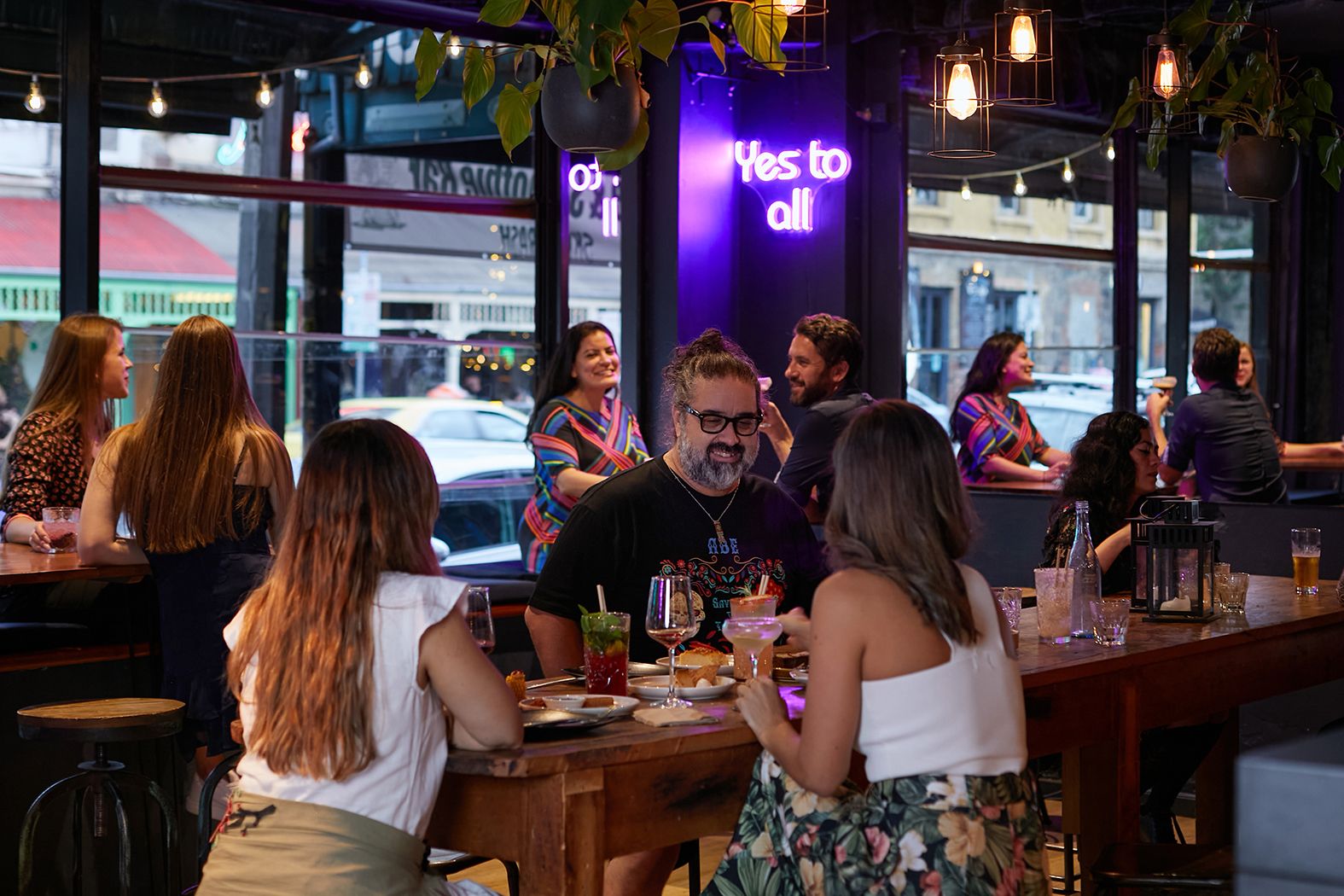
Watching both my digital and physical worlds collapse simultaneously was a special kind of torture that only entrepreneurs understand.
Act III: Finding Soul in the Music Industry (2022-Present)
With both my digital dreams and physical business in ruins, I faced a crossroads: abandon Web3 entirely and retreat to safer territory, or find a completely new approach that applied every hard-earned lesson from years of spectacular failures.
The music industry, which I understood intimately from operating a venue, presented the perfect laboratory for everything I had learned about technology, community, and human behavior.
The problems in music were glaringly obvious: streaming platforms like Spotify extract enormous value while paying artists virtually nothing; record labels maintain deliberately opaque accounting practices; and passionate fans have extremely limited ways to directly support or invest in artists they genuinely love.
Here was an industry crying out for exactly the transparency and user-ownership that blockchain technology promised to deliver.
But there was still one crucial lesson left to learn: blockchain enthusiasts don't understand the music industry's complex realities, and musicians don't understand or care about blockchain technology.
The Great Translation Challenge
After months of frustration trying to convince musicians to embrace blockchain technology, we realized we needed to do something radically different: make blockchain's revolutionary benefits obvious while making the underlying technology completely invisible.
Instead of leading conversations with tokens, NFTs, or decentralized governance structures, we focused laser-like on solving real, immediate problems that artists face every single day.
Initially, we built a digital marketplace where artists could sell NFTs with tangible, real-world benefits—exclusive digital files, unreleased music, concert tickets, and direct access. But we quickly realized artists didn't need another platform to manage and promote. They needed their own digital infrastructure that they could control completely.
This insight led to our breakthrough product: a website builder that allows artists to create their own branded digital spaces where they can sell both digital and physical products (powered by NFTs and blockchain technology) while engaging and rewarding fans for promotional activities.
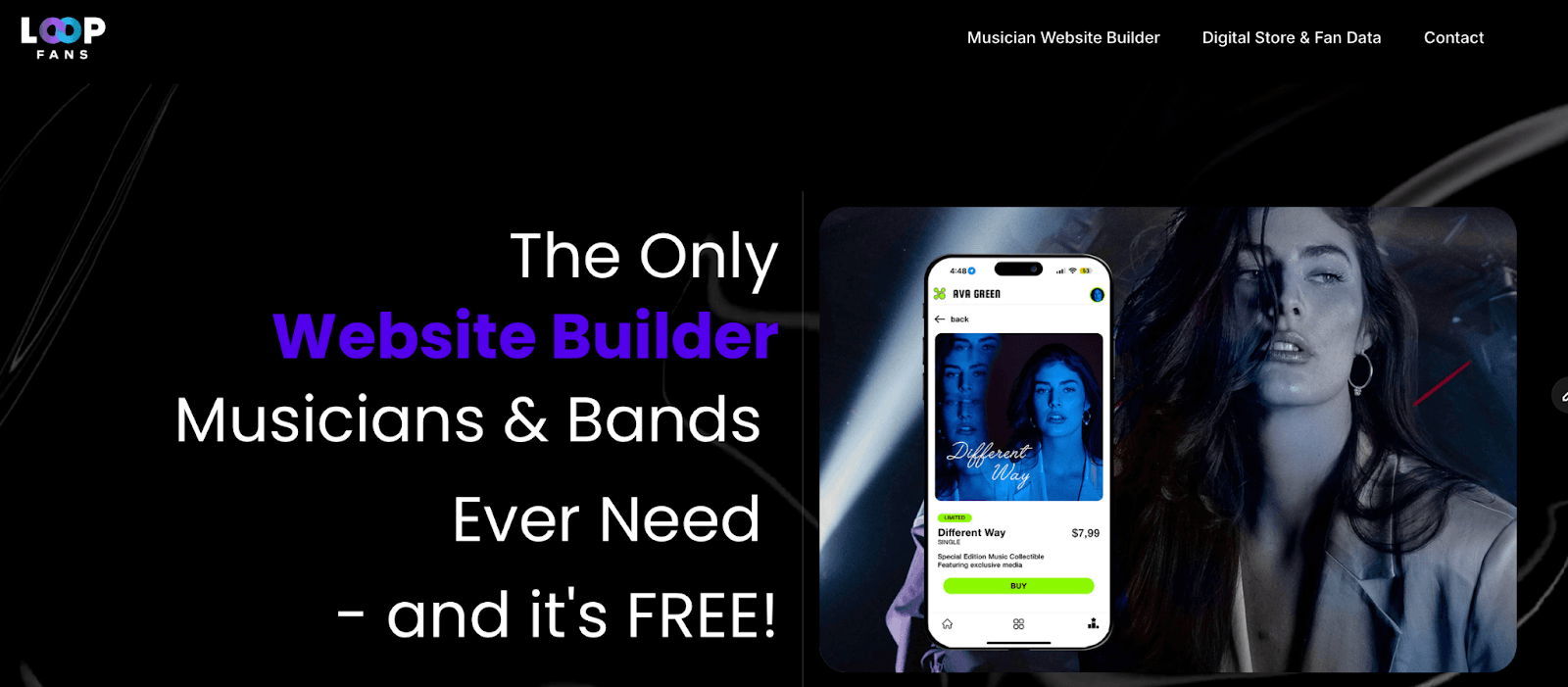
The magic happens invisibly in the background. When a fan purchases music, they're not just buying an MP3 file—they're receiving a blockchain-verified NFT asset that proves authentic ownership and can include exclusive perks and future resale value. When fans share content on social media or promote artists to their networks, they earn tokens that can be redeemed for merchandise, exclusive access, or even revenue shares.
Most importantly, artists maintain complete control over their audience data and revenue streams, free from the extractive policies of traditional platforms.
Breaking Through the Industry Wall
After years of building in relative obscurity and facing constant skepticism, we're finally gaining recognition from the music industry establishment. The difference? We stopped talking about blockchain technology and started talking about artist empowerment, sustainable fan engagement, and revenue optimization.
Our platform allows passionate fans to become genuine stakeholders and micro-investors in the artists they love, creating authentic win-win relationships that go far beyond traditional consumer transactions. Artists gain dedicated supporters with real financial incentives to promote their work, while fans acquire authentic ownership stakes in their favorite musicians' long-term success.
The transformation is profound: fans stop being passive consumers and become active participants in artists' careers. They share music not just because they enjoy it, but because they have skin in the game. They attend concerts not just for entertainment, but as stakeholders celebrating their shared investment's success.
Seven Years to Product-Market Fit
The journey to this breakthrough has been absolutely exhausting. Seven years of surviving multiple market crashes, navigating regulatory uncertainty, facing industry skepticism, and enduring global pandemics that destroyed entire business models overnight.
There were countless moments when pivoting to traditional technology or abandoning entrepreneurship entirely seemed not just rational, but necessary for survival. Even our families started asking when we would give up our "crazy dreams" and get "real jobs" with steady paychecks and predictable futures.
But persistence has its profound rewards. We're not just building another music platform—we're creating foundational infrastructure for Web3 applications where users become stakeholders by default rather than products to be monetized. This model has revolutionary applications far beyond music, potentially transforming how any content creator or service provider interacts with their community.
Every rejected pitch, every failed product, every technical setback taught us something essential about building sustainable relationships between technology and human behavior.
Looking Forward: The Stakeholder Revolution
The future we're constructing isn't just about providing better tools for musicians. It's about proving definitively that platforms can be designed to benefit users rather than exploit them for shareholder value.
Every fan who earns tokens for authentic promotion, every artist who retains complete ownership of their audience relationships, every transaction that happens transparently on-chain represents a small but significant victory against extractive platform capitalism that has dominated the internet for decades.
We're still in the early stages. Mainstream adoption of Web3 technologies requires more than just superior products—it demands a fundamental shift in how people think about digital ownership, value creation, and online relationships. But after seven years of building, failing spectacularly, and rebuilding with hard-earned wisdom, I'm convinced that patience and relentless persistence will eventually overcome the natural friction of true innovation.
The music industry, with its intensely passionate fan communities and desperate need for fair compensation models, provides the perfect proving ground for Web3's most ambitious promises to become everyday reality.
Sometimes the longest, most difficult roads lead to the most meaningful destinations. After seven years of wandering in the wilderness of emerging technology, we've finally found our way to something that matters: a platform where music fans become genuine stakeholders in the artists they love.
The revolution is just beginning, and it sounds better than anything we could have imagined.

